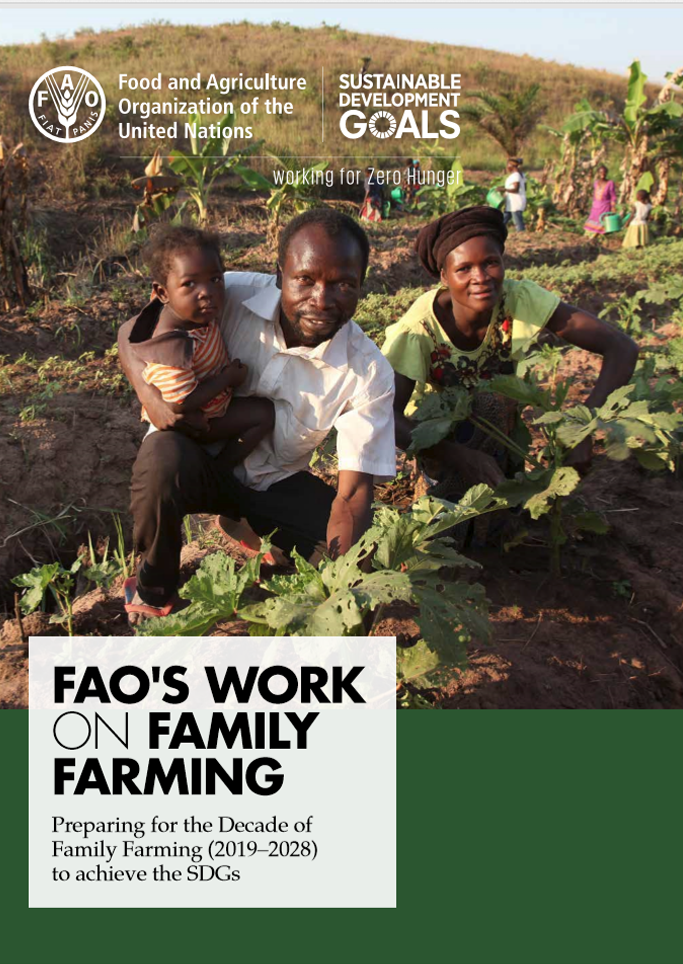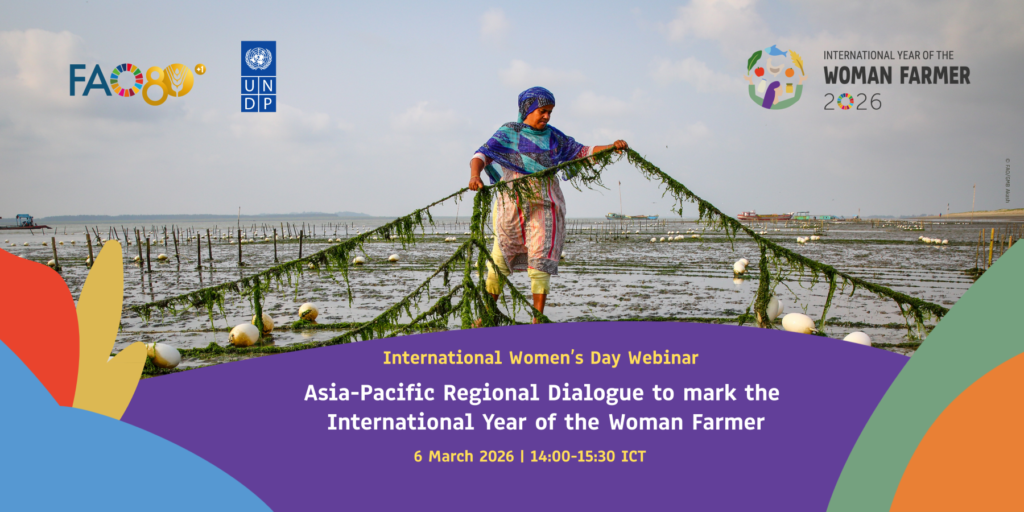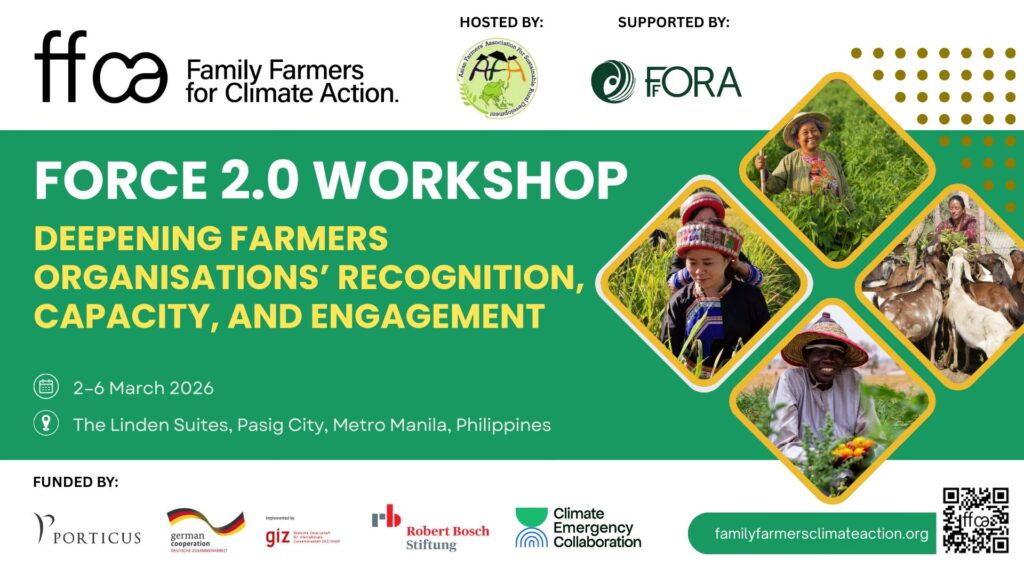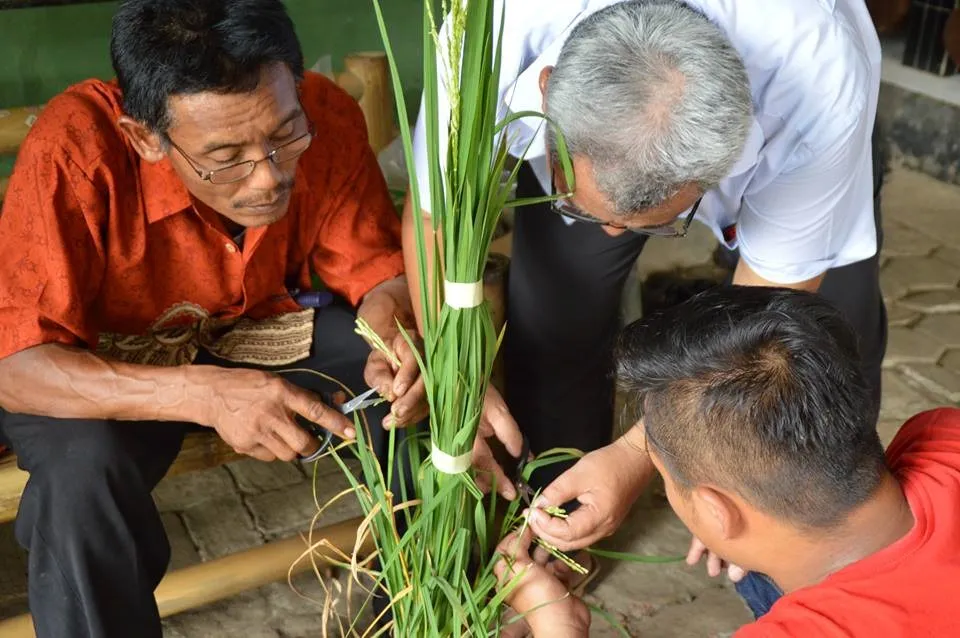
FAO Work on Family Farming
Family farming is by far the most prevalent form of agriculture both in developed and developing countries, representing the largest source of employment worldwide. It is much more than a mode of food production. It is a way of life.
In 2014, the International Year of Family Farming (IYFF 2014) focused the world’s attention on family farmers’ important role in alleviating hunger and poverty, providing food security and nutrition, improving livelihoods, sustainably managing natural resources, protecting the environment, and fostering sustainable development.
In 2017, the United Nations Decade of Family Farming 2019–2028 was proclaimed as a framework for countries to develop public policies and investments to support family farmers and contribute to the achievement of the Sustainable Development Goals (SDGs), including eradicating rural poverty in all its forms and dimensions.
This publication highlights some of FAO’s key messages and work on family farming at regional and national level, showing the positive developments since IYFF 2014 and underlining specific levers and processes to scale up throughout the upcoming Decade.



